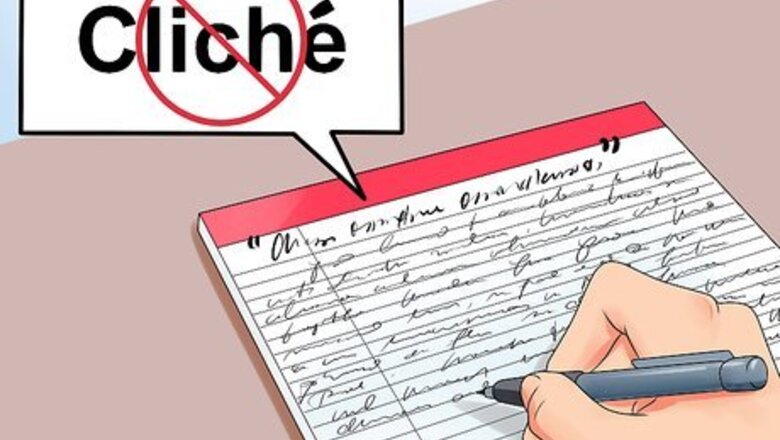
views
Finding the Perfect Quotation
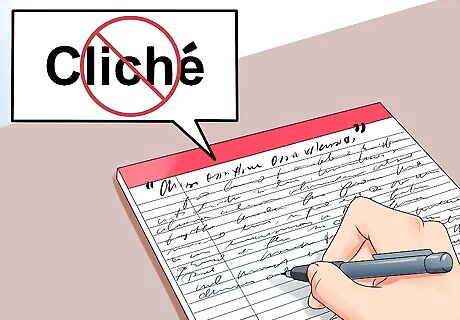
Avoid clichés and overused quotations. Using a quotation that is very famous in the same way that everyone uses that quotation will bore your reader. It could also make you seem lazy or as though you haven't considered your audience.

Use a surprising comment. Finding a quote that is surprising in some way. Consider one of the following approaches: Quote a person saying something that someone would not expect them to say. Quote someone who is not universally famous. Use a well-known quote but contradict it.

Research the quote’s context. Knowing the context in which the quotation was originally used is important to using it accurately. It will also help you determine whether the quote is an appropriate means of introducing your essay.

Know your audience. The effectiveness of the quotation you use will be determined by the audience of your paper. Determine whether the audience will be familiar with the person who you are quoting. If it is someone obscure or you think they will not be familiar, consider providing additional (brief) details. Do not use a quote that could be offensive to the audience unless you plan to contradict the quotation. Strike a balance between assuming your audience knows everything and assuming they know nothing. You should be clear and informative but not insulting to the intelligence of your reader.

Hook your reader. Think of a quotation as a “hook” that will get your reader's attention and make her want to read more of your paper. The well-executed quotation is one way to draw your reader in to your essay.

Ensure that the quotation contributes to your essay. A snappy quotation that doesn't help to set up your topic, or that is unrelated to the rest of your essay, will distract from the essay's focus.
Quoting Correctly
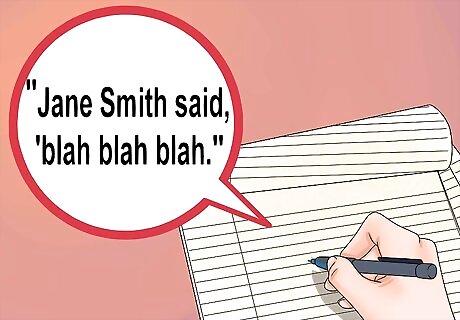
Introduce the quotation appropriately. Quotes should not stand alone in your paper. Your words should introduce the quotation, usually coming before the quote (though after may be okay). Several options for introducing the quotation are available to you: Use the quote as a sentence predicate. The subject of the sentence will be the person who said the quote, and the verb will most likely be a synonym of “said.” For example, "Jane Smith said, 'blah blah blah.'" Preview the content of the quote. Use your own (grammatically correct) sentence to preview or paraphrase what the quote will say, then insert a colon or comma, then the (grammatically correct) sentence-length quotation. For example: "Once Jane Smith said something completely awesome: 'the awesome thing she said.'" Begin with the quote. If you begin with the quote, be sure to place a comma after the quote and then provide a verb and attribute the quotation to the source. For example: "'Blah blah blah,' said Jane Smith."
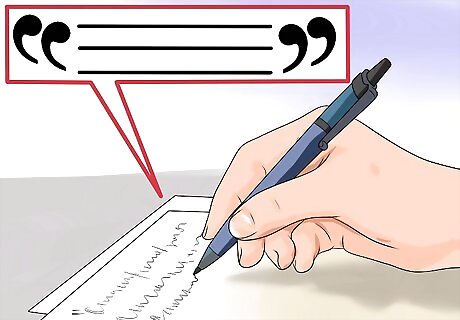
Punctuate the quote appropriately. Quotations should always appear with quotation marks around them. Failing to use quotation marks may result in plagiarism. The quote only needs to be capitalized if it begins the sentence or if the first word of the quote is a proper noun, like the name of a person or a place. In American usage, end punctuation should be placed inside the quotation marks. For example, “this is the quote.” Paraphrased material (someone else’s idea put into your own words) need not have quotation marks around it, but should be attributed to the original speaker. If you introduce the quote with the speaker’s name and a verb, provide a comma before the beginning of the quotation. For example: "Jane Smith said, 'blah blah blah.'"

Attribute the quote correctly. This may seem obvious, but be sure the person who you’re quoting actually said the quote. Not all sources of information are legitimate, so looking at an academic source rather than an internet source may be more accurate. Starting your paper with a glaring mistake will set a bad precedent for the rest of your ideas. Be particularly aware of quotations found on social media such as Pinterest, or on quote aggregators such as Brainyquote. These sources are notorious for mis-attributing and even making up famous quotes.

Be true to the meaning and context of the quote. This is tied to academic honesty. Do not manipulate a quotation to fit your purposes by leaving out words or misleading the audience about the context of the quotation.

Use a fragment of a long quote. If the quotation is long, or you only need part of it to make your point, you can leave sections out by using an ellipses (…). You may also need to substitute a word (like a name rather than a pronoun) for clarity. If you need to substitute a word, place square brackets around the word to indicate that you made a change. For example: "Jane Smith said, 'blah [blady] blah.'" Be sure to keep the original intent of the quotation when making changes. Changes should be made only to preserve clarity or to change length, not to manipulate the content of the quotation.
Incorporating the Quotation into Your Introduction
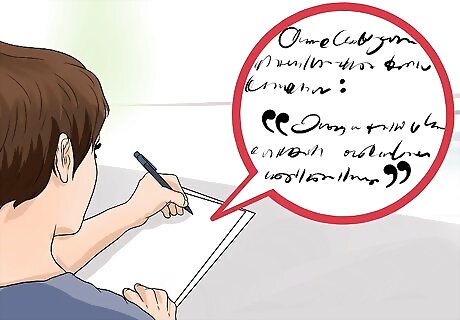
Introduce the quotation. The quotation needs to be introduced in your own words. This can come either before or after the quote itself. You should identify the speaker of the quotation.

Provide context for the quotation. Particularly if your quote is the first sentence in your paper, be sure to provide 2-3 sentences of explanation and context. There should be a clear sense of why you are choosing to use the quotation and why it is important to the rest of your paper. In your introduction, you need to be clear about what you're going to talk about and how you're going to talk about it.

Connect the quotation to your thesis. You should provide an explicit connection between the quotation and your thesis, or the central argument of your paper. Be sure that the quotation you use supports your thesis. Be sure that using the quotation enhances, rather than distracting from, your argument.



















Comments
0 comment